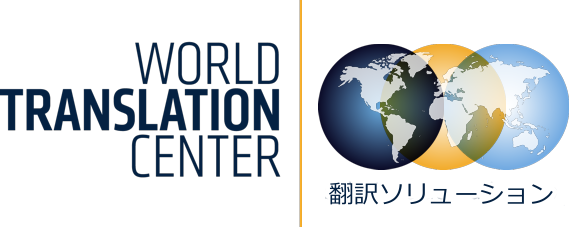WORLD TRANSLATION CENTERは、世界中の専門翻訳者による翻訳と音声録音サービスを提供する大手翻訳会社です。
Articles and Stories
The need for human translators will always exist.
The Internet is getting bigger by the minute and therefore the world is getting smaller. Because of the abundance of websites in many countries and languages, translation is in an all-time high demand.
Economic momentum shifts from country to country and we can tell where the action is. As soon as countries open up, requests for translation for that country increase. Software, in the form of computer-assisted translation tools, is helping along the way, and the software companies rush to add a new language.
The Internet and modern life cannot advance without translation. With so many new websites and so many people acquiring Internet access every day, the Internet is becoming more and more important.The impact of translation can be seen on almost every website and everywhere we look. New words and phrases are being created by technological developments and distributed through marketing efforts via the Internet. Translators must quickly come up with equivalents in their own languages for all of these newly created words.
Given the speed with which technology is advancing and new words and phrases being created, translators ability to adapt the changes to their native languages will be challenged.
Translators already do far more than just convert information across languages; they influence the readers and listeners with the translated messages. Technologists, companies and every individual will depend on translators’ skills and knowledge to help create a more advanced and rich future.
Almost every part of modern life depends in some way on translation. With a huge number of languages around the world, every country is in some way multilingual. The tools of our future depend on translators. Any software that is used to help with translation originated directly from translators. If there is no one to translate the content, then nobody can use the data. Success depends directly on the work of human translators and that will continue to be the case.
The profession of translation has existed for as long as humans have spoken different languages. It started with verbal communication between tribes and moved to complicated written text. It has taken many years for the art of translation to evolve to such a complex profession and even if machines should become capable of producing human-like quality translation, the need for human translators will continue to exist and influence the world.







